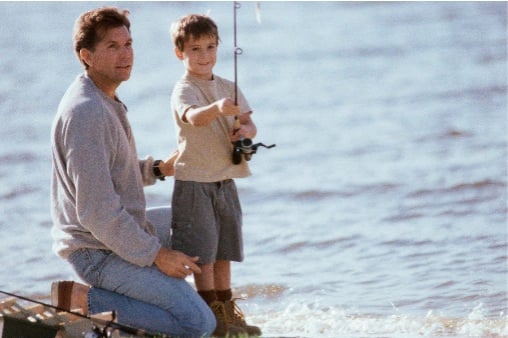Child Custody Laws in Montana

Determining child custody is an important part of the separation or divorce process for parents. In this situation, it is best to educate yourself on these laws specifically so that you are prepared for your custody agreement and possible court date. Montana child custody laws might not differ much from those in other states right now, but these laws will update and change over time. For this reason, it is important to stay informed about current child custody laws in Montana.
How child custody is determined in Montana
Like other states, Montana child custody laws call for a decision to be made that is in the best interests of the child. A judge will look at a variety of factors when determining what is in the child's best interests. Some of these factors include the developmental needs of the child, how well adjusted the child is to their current home and school, any history of physical abuse or violence between parents, and the wishes of both parents and the child.
Both legal and physical custody will be determined, and these will be granted on a "sole" or "joint" basis. A parent with legal custody will have the right to make major decisions about the child's life such as education and health care. A parent with physical custody means that the child lives full or part-time with that parent, and the parent has the right to make decisions dealing with the daily routine of the child. A sole custody arrangement gives only one parent legal and/or physical rights and responsibilities, while a joint custody arrangement gives both parents shared rights and responsibilities.
Montana child custody laws regarding modifications
In Montana, it is possible to modify a custody arrangement, but a Montana court will want to see significant changes in circumstances for the family before granting a modification. The modification will also need to serve the best interests of the child. When considering modifications, a court will look at factors dealing with the child's best interests as well as other details. These other details may include whether both parents agree to the modification, whether the modification was actually requested by the child, whether one parent is planning to move and if this move will affect that parent's time with the child, and whether one parent has attempted to or regularly refused the child to have contact with the other parent.
During and after the process of determining a parenting plan and custody, it is best if parents are able to maintain amicable communication in regards to their child. There will be a need to be in ongoing contact about the child's schedule, events at school, medical details, and much more. Using the web and mobile tools offered by the OurFamilyWizard® website, the entire family is able to stay on the same page about all of these details using a neutral platform to communicate through. Even other family members or other child caretakers can be included in the conversation with limited access to view information that pertains to them such as the family calendar.
This information is not to be used as legal advice. For more information and legal guidance, please refer to an attorney or family law professional who practices in Montana. The OurFamilyWizard® website offers divorced or separated parents tools to more easily manage their custody schedule, family vital information, parenting expenses and more. Learn more about the features available on the OurFamilyWizard® website here.
NOTE: Many state and federal laws use terms like ‘custody’ when referring to arrangements regarding parenting time and decision-making for a child. While this has been the case for many years, these are not the only terms currently used to refer to these topics.
Today, many family law practitioners and even laws within certain states use terms such as ‘parenting arrangements’ or ‘parenting responsibility,’ among others, when referring to matters surrounding legal and physical child custody. You will find these terms as well as custody used on the OurFamilyWizard website.